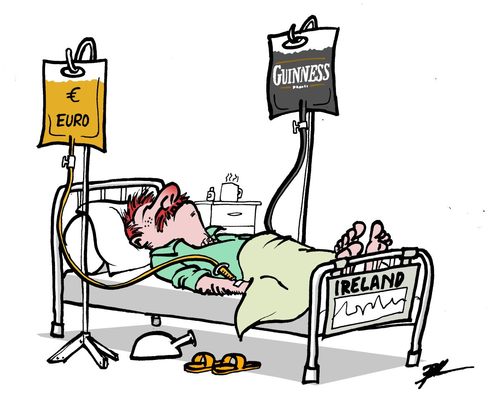
Ireland Will Implement Website Blocking
Ireland’s Data Protection Commissioner has ordered a halt on the “three-strikes” regime because of its conflicts with privacy policies and the failure of the country’s Internet service provider Eircom to properly apply the “graduate response system”.The issue dates back to 2009, when the Irish Recorded Music Association had reached an agreement with one of the largest ISPs in the country on the issues of unauthorized file-sharing. Under this agreement, the ISP, supervised by the outfit members (EMI, Sony, Universal and Warner), had to introduce the graduated response system.
A year ago, Eircom promised that it would be proceeding with implementation of the protocol which might lead to the suspension and ultimately disconnection of Internet service for those subscribers who deliberately and persistently violate copyright legislation.
Nevertheless, something went wrong when the ISP sent 300 notification letters to the wrong people. This failure wasn’t taken easy by the country’s Data Protection Commissioner that launched an investigation to establish the legality of the “three-strikes” regime. A report was released, saying that the authorities have decided to put a halt to the practice.
The industry experts agree that today both the courts and the official Data Protection Commissioner are starting to understand the fundamental right of users to access the web, and not to be tracked while doing so. Despite the fact that things looked bleak for the entertainment industry, one more report was released recently, revealing that website blocking can be considered as an alternative solution.
According to the local media, Seán Sherlock (Minister of State for Enterprise) is going to publish an order early next year which will allow copyright owners, after obtaining a court order, to deny access to violating services with the help of broadband providers. However, it is still unclear which websites will be classified as infringing.
The decision of the minister was mainly influenced by EMI’s threats to sue Ireland if it fails to find a feasible solution against digital piracy. In response, the Department of Enterprise, Innovation and Jobs said to EMI that the order is expected to be published and applied as law in January 2012.












No comments:
Post a Comment